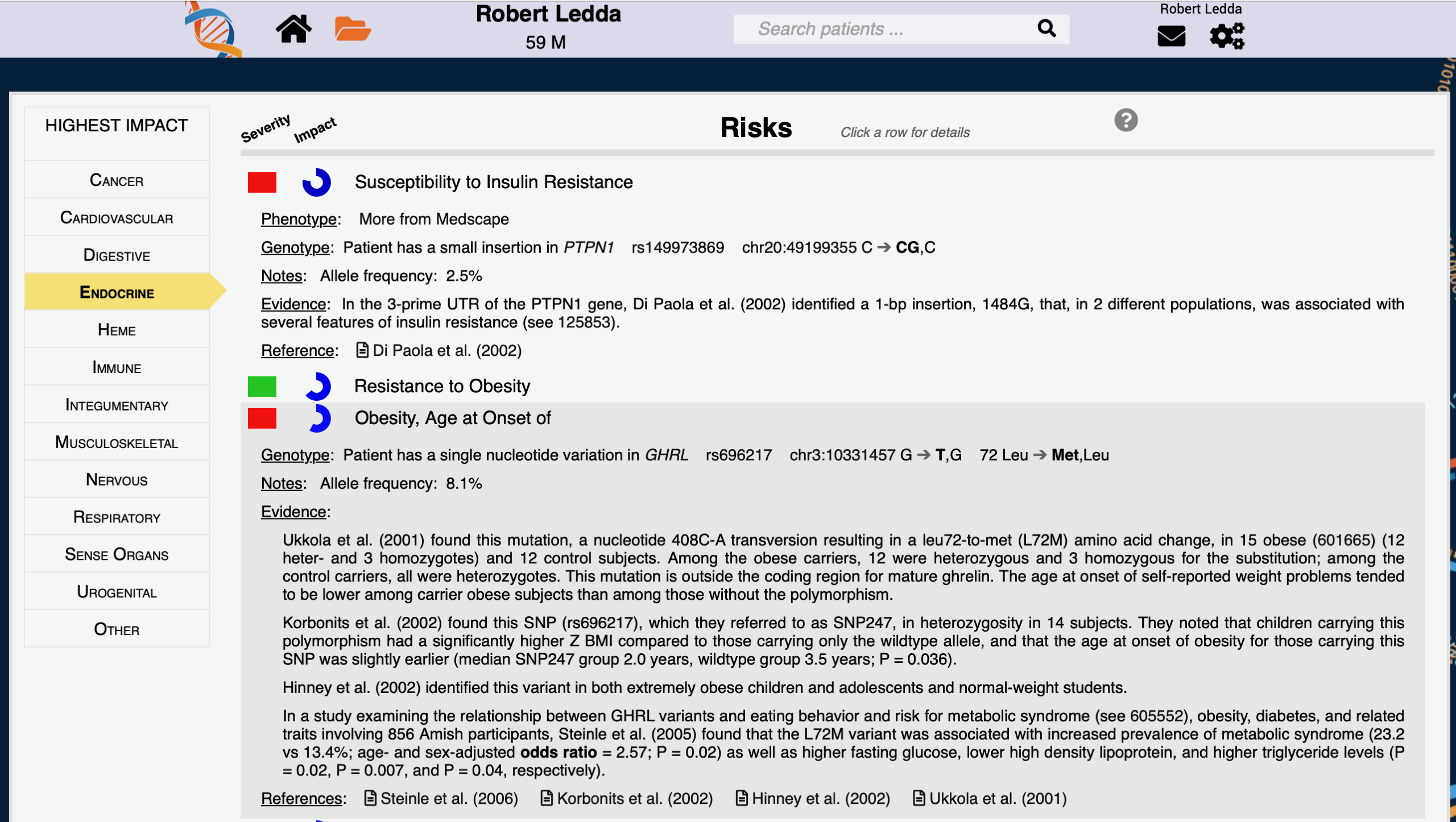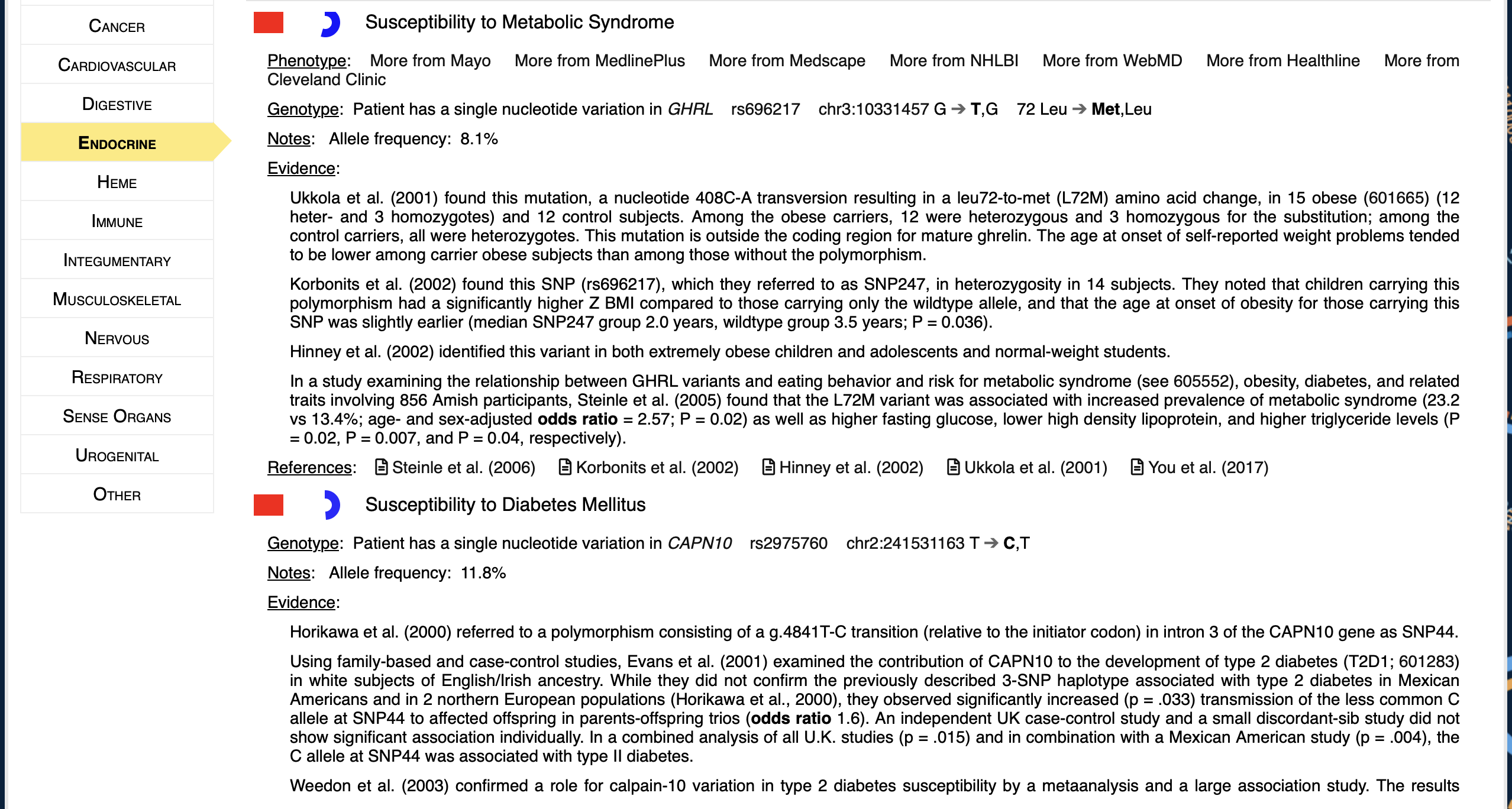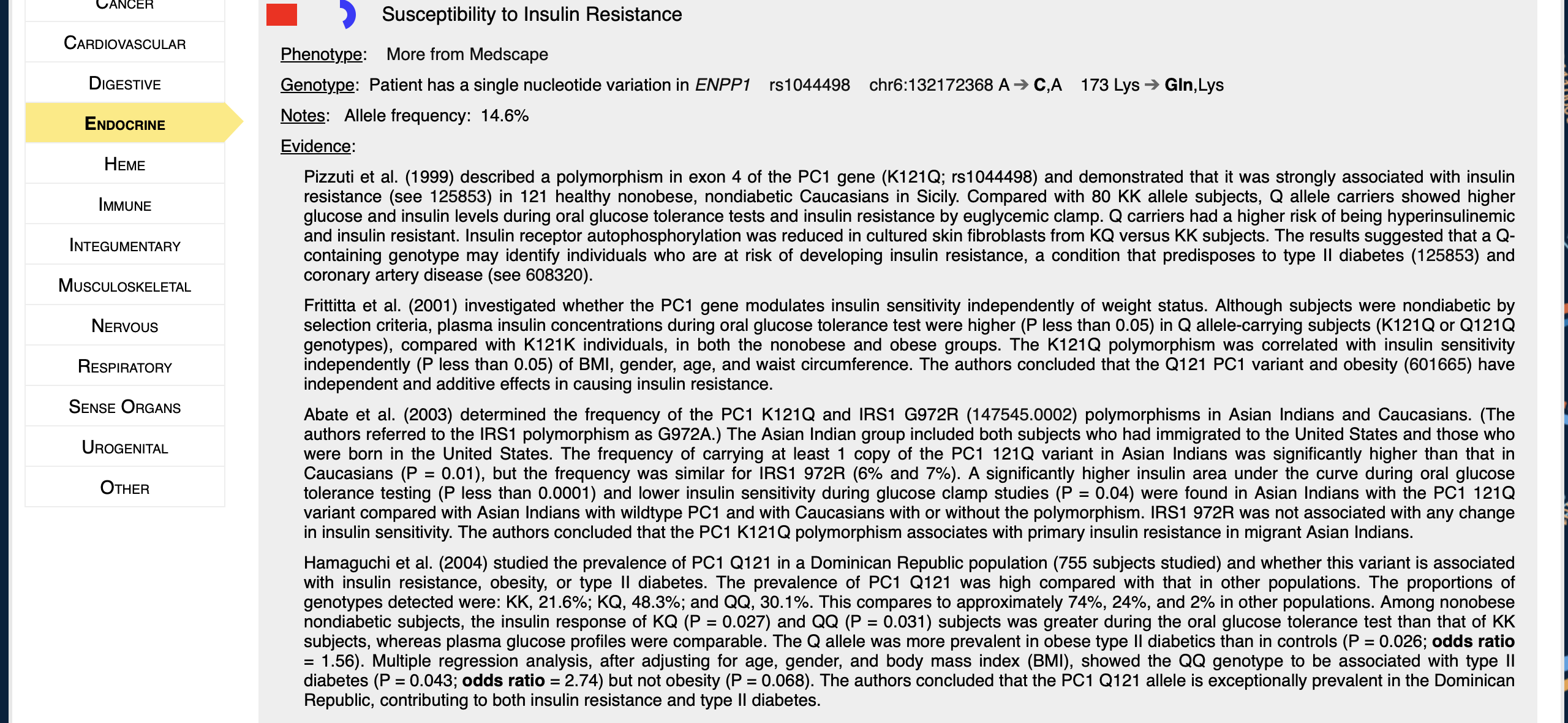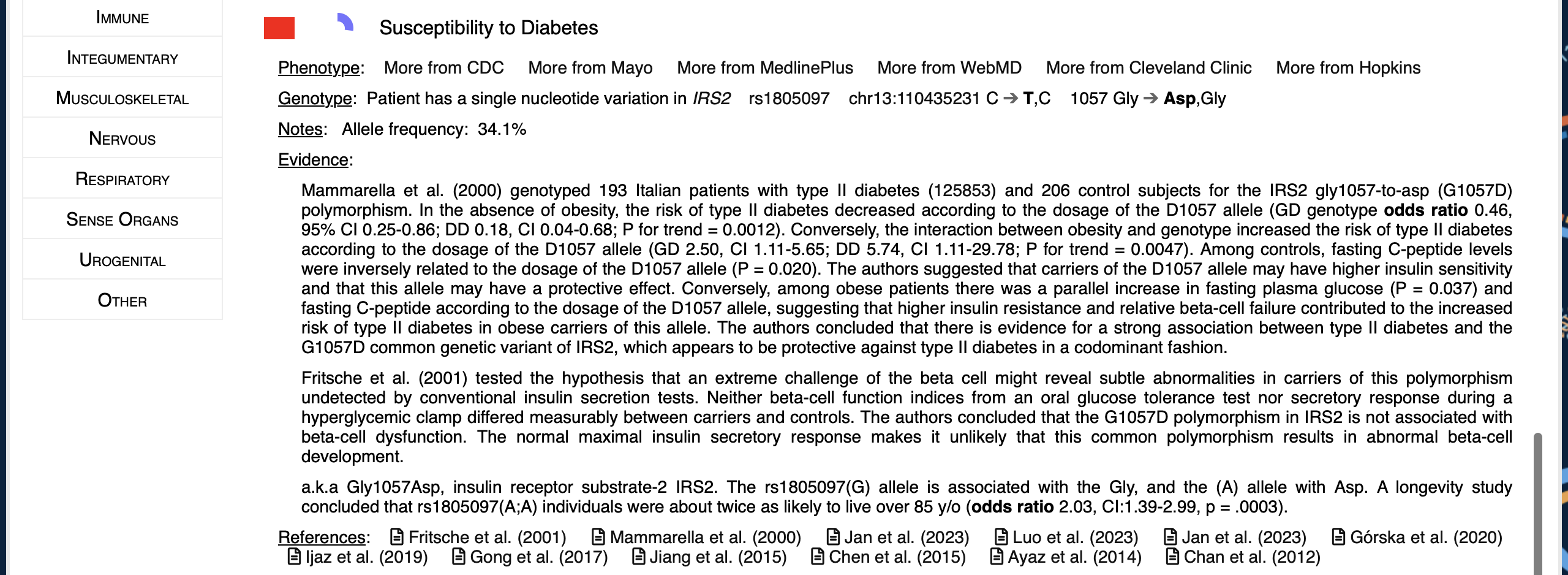Dr. Bobs Health Records
Dr. Bob’s Metabolic Health
Consider the following information. First, in the information below, I have shared my risks according to my genome of developing problems with my metabolic health. You will notice that the highest impact (the more closed the blue circle, the higher the impact of the genetic susceptibility) is a susceptibility to insulin resistance. Insulin resistance is often termed the root cause of all metabolic dysfunction. This particular genetic anomaly that I possess is likely the worst actor. You can see that it is a fairly rare gene with an allele frequency of 2.5%. Both my father and my grandfather on my dad’s side developed insulin-dependent diabetes when they got old and fat. I suspect this gene was passed down through that side of the family. At the very bottom of this series of data are my labs dating all the way back to 2015. I teach my patients that insulin resistance occurs typically before the onset of type two diabetes. It is more sensitive for metabolic dysfunction than just following hemoglobin A-1 C, which predicts the average blood sugar over the last three months. If you drop down and look at my labs, you will see that I demonstrate neither insulin resistance or elevated hemoglobin A-1 C and in fact have ideal markers in both of these domains. We use an equation called the homeostatic model of insulin resistance which takes the fasting blood sugar and the fasting insulin level and predicts whether insulin resistance is present. My values are always less than one and typically less than 0.5 meaning I am demonstrating excellent insulin sensitivity despite this genetic anomaly.
The Green flag appears to indicate that I do have one gene that helps protect me against obesity. However, examine the Red flag below that. You will see that I have a single amino acid substitution in my Ghrelin gene, a protein that is a significant driver of appetite. The frequency of this gene in the population is also fairly low at 8.1%. It is demonstrating that it is associated with Obesity as well as Susceptibility to Metabolic syndrome (the Red Flag below the Obesity, Age at onset flag). Metabolic syndrome is a combination of obesity, type two diabetes, high blood pressure, systemic inflammation and a poor blood fat panel. The only place where I have significant discrepancy from ideal values is with regards to my blood fat panel, which is more genetically controlled (review Dr. Bob’s Genomic and Cleerly report in this section). Lifestyle modifications can improve blood fat panels, but typically not more than about 10%. I demonstrate absolutely no evidence of insulin insensitivity, have very low average blood sugar, my average blood pressure is around 100/60, and I don’t think I need to post a series of my DEXA scans to show that I am typically not demonstrating any signs of obesity, or even overweight.
If you go down and look at my Inflammatory markers, you will see that my high sensitivity C-reactive protein suggest that I have very little blood vessel inflammation. Homocysteine, another marker of vessel inflammation that has been correlated to increased risk of heart attack and stroke, is also quite low, but I owe this to the fact that I supplement with Methylation Formula. This is a combination of B vitamins that has slowly reduced my homocysteine levels to below our target of 9. I watched my higher than optimal levels for a few years, and they were ranging between 10 and 11, and though technically normal according to quest labs, levels above 9 are not ideal and are associated with increased risk of cardiovascular disease. My genome did demonstrate some defects and folate metabolism which is one of the B vitamins which likely accounts for some of this benefit. I generally utilize Methylation Formula in those persons that demonstrate consistent homocysteine levels above 9 and find it to be affective in those that are compliant.
Just in case you think I just got handed the greatest genetic deal in God’s poker game, you will see that I have three more fairly uncommon genes that increase risk of metabolic dysfunction. There are two additional genes that have been demonstrated to increase risk of diabetes, and another gene associated with increased risk of insulin insensitivity. It appears that my interventions, particularly over the last 10 years has markedly reduced my genetic predisposition to metabolic dysfunction.
I think it is safe to say that my current strategy (lifestyle, supplementation and HRT) seems to be preventing disease despite increased risks.






